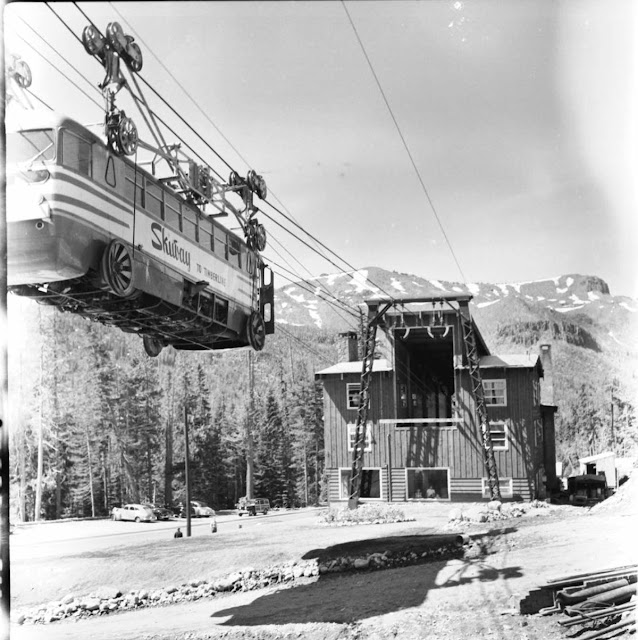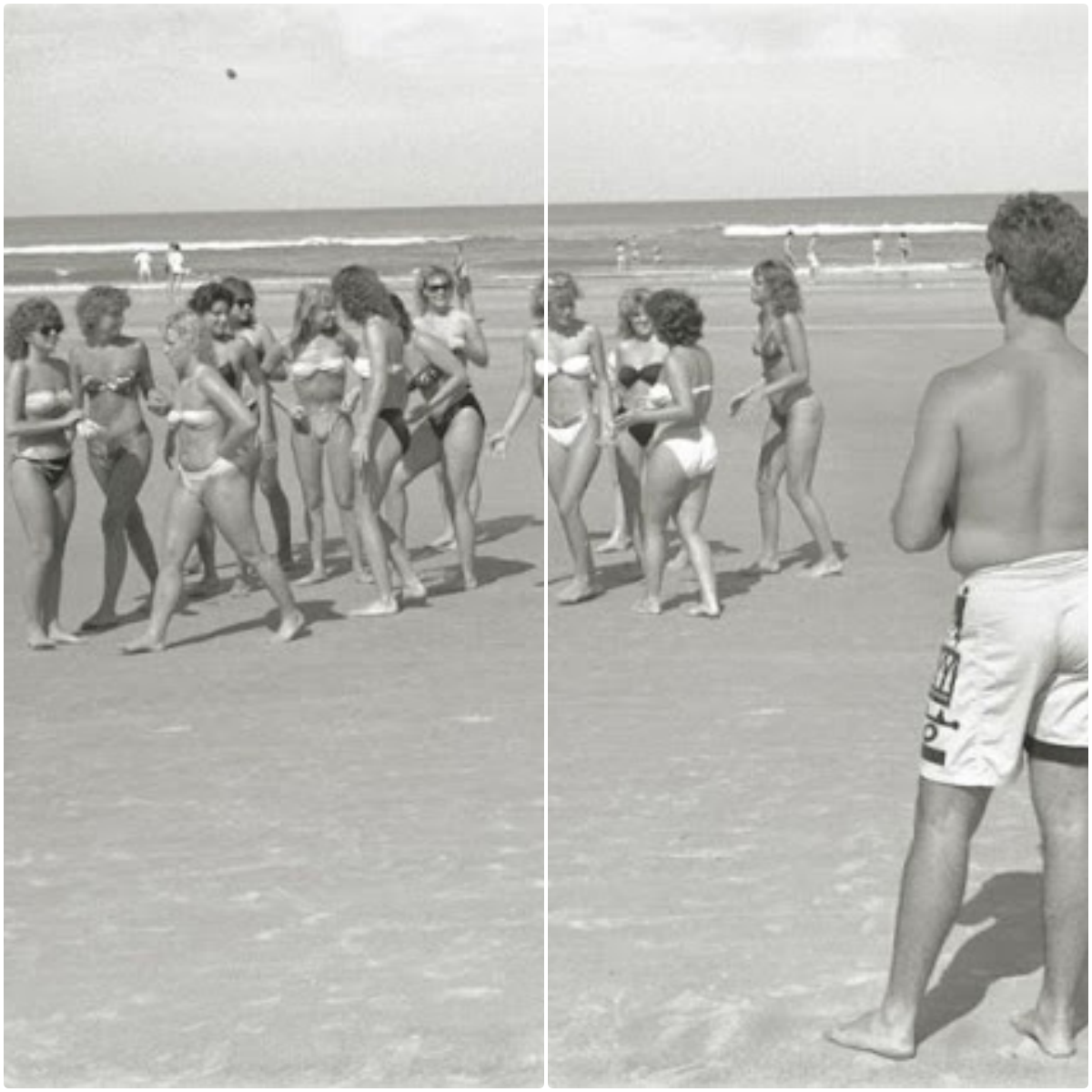Using a modified city bus, a twin-engine design powered the wheels to turn cables in a pulley system that moved the tram back and forth above the slope.
The tram was originally going to be called the “Skyway” but when they ran into copyright problems they changed it to “Skiway” (the tram buses were also nicknamed “cloudliners” and “flying buses”). The tramway was promoted as the longest and largest in the world and the first of its type ever to be constructed. The tram cars were actually converted city buses and they each seated 36 people, with room for 14 more to stand. The tram did not operate like other trams did. The buses each had two 185-horsepower gas engines.

|
| In January 1951, the Mt. Hood Skiway tram climbed for the first time from below Government Camp to Timberline Lodge. |
Vintage Photographs of the Skiway Sky Bus Lift Used on Mt. Hood, Oregon From the 1950s

|
| It was the longest of its kind in the world and attracted the attention of newspapers, popular magazines, and newsreel producers on its preview voyage. Despite this excitement, the tram was short-lived and ceased operating five years later. |
Vintage Photographs of the Skiway Sky Bus Lift Used on Mt. Hood, Oregon From the 1950s

|
| Two skiers stand on a snowy ski slope below a Skiway tram car on November 25, 1951. |
Vintage Photographs of the Skiway Sky Bus Lift Used on Mt. Hood, Oregon From the 1950s
 |
| The Skiway route took 25 minutes one way and could transport up to 72 people per hour. |
Vintage Photographs of the Skiway Sky Bus Lift Used on Mt. Hood, Oregon From the 1950s
 |
| The Skiway tram. |
Vintage Photographs of the Skiway Sky Bus Lift Used on Mt. Hood, Oregon From the 1950s
 |
| The lower terminal of the Skiway tram. |
Vintage Photographs of the Skiway Sky Bus Lift Used on Mt. Hood, Oregon From the 1950s
 |
| At Timberline Lodge the tram had no upper terminal building. Passengers had to load and unload from an open-air platform. |
Vintage Photographs of the Skiway Sky Bus Lift Used on Mt. Hood, Oregon From the 1950s
 |
| The loading platform at Timberline Lodge. |
Vintage Photographs of the Skiway Sky Bus Lift Used on Mt. Hood, Oregon From the 1950s
 |
| It took planners and workers over three years to clear a line for the Skiway and build its structure. Here, the Skiway bus sits at the terminal building. |
Vintage Photographs of the Skiway Sky Bus Lift Used on Mt. Hood, Oregon From the 1950s
 |
| Mt. Hood National Forest, Timberline Lodge, Skyway lift. |

Vintage Photographs of the Skiway Sky Bus Lift Used on Mt. Hood, Oregon From the 1950s

Vintage Photographs of the Skiway Sky Bus Lift Used on Mt. Hood, Oregon From the 1950s

Vintage Photographs of the Skiway Sky Bus Lift Used on Mt. Hood, Oregon From the 1950s
 |
| Thunderbird Lodge and bottom terminal Mt. Hood Skiway Government Camp. |
Vintage Photographs of the Skiway Sky Bus Lift Used on Mt. Hood, Oregon From the 1950s




![What American [Woman's] Look Looked Like, 1945 What American [Woman's] Look Looked Like, 1945](https://cybergalleria.com/uploads/system/2024/01/483-1704388615.png)